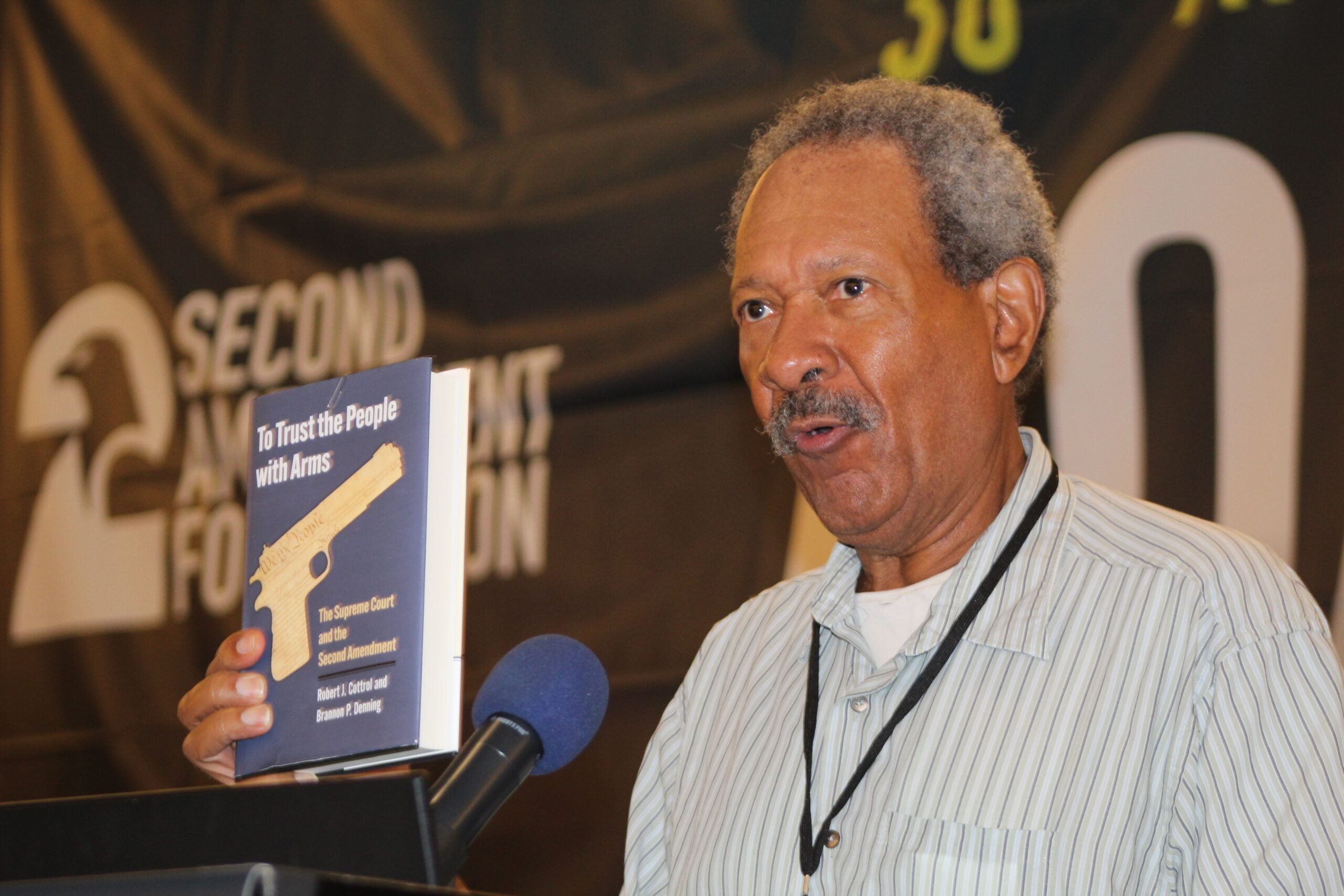
By Dave Workman
Editor-in-Chief
Robert Cottrol, professor of law, history and sociology at George Washington University and co-author of the soon-to-be-released book on the Supreme Court and the Second Amendment (see related review), gives lots of credit for gun rights victories before the high court to the state preemption movement of the 1970s and 80s.
Cottrol, a self-described liberal but a stalwart advocate of the individual right to keep and bear arms, is among the most prominent academic proponents of the Second Amendment. Referring to the successes achieved in recent years by the Second Amendment movement, he gave credit to the “American people and their common sense.”
Pointing to early scholarship by people such as David Hardy, Joyce Malcolm, David Caplan and Don B. Kates, Cottrol led the audience through the minefield of gun rights legal and political advances, noting that today’s achievements were made possible “by people willing to engage in independent thinking and hard research.”
While research showed no evidence that gun control decreased crime, Cottrol noted there was “robust evidence that there was a significant amount of deterrence and defense against crime because ordinary citizens had the means to protect themselves and did so in large numbers throughout the years.”
This brought forth more study by such folks as Prof. Gary Kleck and author/researcher John Lott.
But the Supreme Court ruling in Heller back in 2008 might not have been achieved had there not been the push for preemption laws during the prior two decades.
“Had the NRA in the 70s and 80s not pushed state preemption nationwide,” Cottrol posited, “had they not made it impossible for individual municipalities to pass their own gun prohibitions, we would have gone to court with Heller not in a situation where there was simply Washington, DC, Chicago and a handful of small towns in Illinois that had banned handguns, we would have had 20, 30 cities nationwide that would have had handgun bans.”
What helped sway the court about the D.C. handgun ban was the fact that it was a rarity, that it was an anomaly. Now, 15 years later, the Second Amendment movement has scored two other high court victories and more may be on the horizon as lower federal courts wrestle their way through new guidelines set down in the Bruen ruling.
Cottrol closed by encouraging gun owners to “broaden our movement” by reaching out to non-gun owners and showing them “they have a stake in this as well.”



